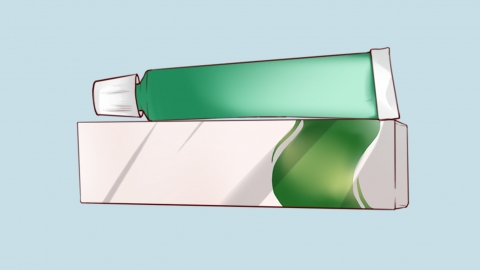What medication can be used for anal fissures during breastfeeding?
Anal fissures during lactation can be treated under medical guidance with medications such as compound algin ointment, erythromycin ointment, nitroglycerin ointment, Taisu suppositories (titanium dioxide suppositories), and moist burn ointment. These help relieve pain and promote healing. If the anal fissure is severe, accompanied by significant bleeding, or shows no improvement after medication, prompt medical consultation is recommended.
1. Compound Algin Ointment: This protects the fissure wound, reduces inflammatory response, and alleviates pain and bleeding. Its mild ingredients do not affect breastfeeding. Apply topically to the affected area; for better results, use after cleaning with warm water.
2. Erythromycin Ointment: A topical antibiotic suitable for anal fissures complicated by bacterial infection. It helps prevent infection and reduce inflammation. Apply a thin layer to the wound. Avoid prolonged or excessive use, and follow medical advice regarding treatment duration.

3. Nitroglycerin Ointment: Helps relax the smooth muscles around the anus and improves local blood circulation, thereby relieving pain and promoting wound healing. During lactation, dosage must strictly follow medical instructions—do not adjust the dose independently.
4. Taisu Suppositories (Tannic Acid & Titanium Dioxide Suppositories): Administered rectally, these lubricate the intestines and protect the intestinal mucosa, reducing irritation to the fissure during bowel movements while also alleviating pain and bleeding. Using after defecation enhances drug absorption.
5. Moist Burn Ointment: Possesses heat-clearing, detoxifying, pain-relieving, and tissue-regenerating properties that promote healing of anal fissures and reduce discomfort. Apply thinly and evenly, avoiding thick layers that may impair breathability. Use as directed by a physician.
Maintain regular bowel movements in daily life: consume more high-fiber foods such as vegetables, fruits, and whole grains; drink plenty of water; avoid prolonged sitting or standing; engage in moderate walking to stimulate intestinal motility; avoid excessive straining during bowel movements; gently clean the anal area with warm water after defecation, and keep the area clean and dry.




